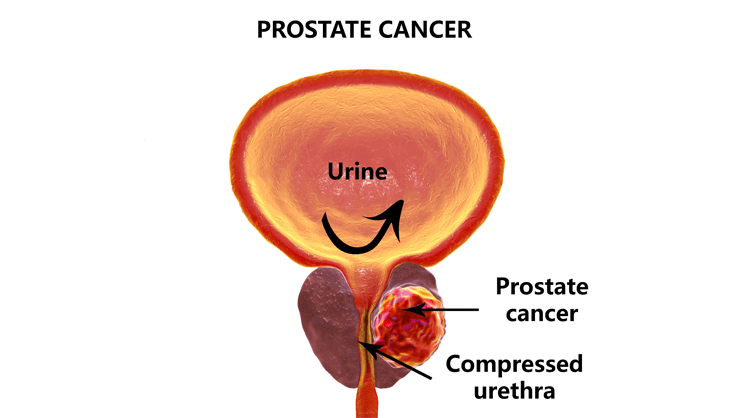Prostate Cancer: Studies Shows That Oral Relugolix Outperforms Conventional Drugs For Rapid Testosterone Suppression
Source: Prostate Cancer Jun 28, 2020 5 years, 7 months, 2 days, 17 hours, 19 minutes ago
Prostate Cancer: A international collaborative study led by researchers from Carolina Urologic Research Center-South Carolina and involving more than 15 medical entities from around the world spanning Tokyo, France, Canada etc, has demonstrated that the use of oral relugolix in men with prostate cancer may help to achieve rapid, sustained suppression of testosterone levels as compared to injectable leuprolide. The study also found that oral relugolix usage to be associated with a 54% lower risk of major adverse cardiovascular events.

The study findings was published in the New England Journal of Medicine.
https://www.nejm.org/doi/10.1056/NEJMoa2004325
Currently, injectable luteinizing hormone-releasing hormone agonists (e.g., leuprolide) are the standard agents for achieving androgen deprivation for prostate cancer despite the initial testosterone surge and delay in therapeutic effect.
Relugolix however is a novel, oral GnRH receptor antagonist that achieves both LH and FSH suppression to its direct inhibitory effect on the pituitary GnRH receptors. This direct inhibition does not result in a testosterone surge. There no information on the efficacy and safety of relugolix as compared to leuprolide.
For research purpose, Dr Neal D. Shore, medical director for the Carolina Urologic Research Center, and colleagues randomly assigned patients with advanced prostate cancer, in a 2:1 ratio, to receive relugolix (120 mg orally once daily) or leuprolide (injections every 3 months) for 48 weeks. A total of 622 patients received relugolix and 308 received leuprolide.
The research primary endpoint was sustained testosterone suppression to castrate levels (<50 ng per deciliter) through 48 weeks. Secondary endpoints included noninferiority with respect to the primary endpoint, castrate levels of testosterone on day 4, and profound castrate levels (<20 ng per deciliter) on day 15. Testosterone recovery was evaluated in a subgroup of patients.
Important findings of the research include:
-significantly, of the male patient who received relugolix, 96.7% maintained castration through 48 weeks, as compared with 88.8% of men receiving leuprolide.
-the difference of 7.9 percentage points showed noninferiority and superiority of relugolix.
-the rest of the key secondary end points showed superiority of relugolix over leuprolide.
-interestingly the percentage of patients with castrate levels of testosterone on day 4 was 56.0% with relugolix and 0% with leuprolide.
-In the subgroup of 184 patients followed for testosterone recovery, the mean testosterone levels 90 days after treatment discontinuation were 288.4 ng per deciliter in the relugolix group and 58.6 ng per deciliter in the leuprolide group.
-Among all the patients, the incidence of major adverse cardiovascular events was 2.9% in the relugolix group and 6.2% in the leuprolide group (hazard ratio, 0.46).
Dr Shore told Thailand Medical News, "In this trial involving men with advanced prostate cancer, relugolix achieved rapid, sustained suppression of testosterone levels that was superior to tha
t with leuprolide, with a 54% lower risk of major adverse cardiovascular events.
For more on
prostate cancer, keep on logging to Thailand Medical News.
HELP! Please help support this website by kindly making a donation to sustain this website and also all in all our initiatives to propel further research: https://www.thailandmedical.news/p/sponsorship
